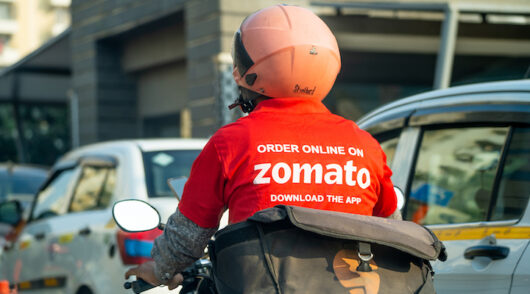In a rapidly evolving retail landscape, retail brand house Kanmo Group stands as a symbol of versatility and global partnerships. Founded in 2005, the group has successfully built a conglomerate that speaks to the heart of Indonesian consumers. With a portfolio that boasts an extensive array of world-renowned brands—ranging from Mothercare and Adidas to Kate Spade—Kanmo has created a unique tapestry of retail experiences across multiple channels. Venturing beyond the traditional reta
l retail sphere, the group has also made its mark in travel retail, securing its place as the master concessionaire for fashion & accessories at Jakarta’s Airport In Indonesia.
Rajesh Grover, group vice president of digital and omnichannel, believes the common point across all industries these days is the rapid digital transformation and adoption of omnichannel strategies to meet customers at various touch points.
“My digital transformation experience is shaped by my experience handling the various nuances and needs of customers that span geographies across different industries and making sure they are delighted at every touchpoint,” he told Inside Retail.
Some of his key experiences revolve around utilising data-driven insights and Artificial Intelligence (AI) to create tailored shopping experiences. This helps drive customer engagement, increase conversion rates and foster customer loyalty and trust.
Moreover, such technology helps to build robust cybersecurity measures and design inclusive experiences, he added.
These are fundamentals Grover keeps in mind as he works to improve processes and systems to generate more cost-savings and improve efficiencies across the wider Kanmo Group.
Cultural nuances
Kanmo Group operates across a number of regions, including the Indian subcontinent, the Middle East, and Southeast Asia. As such, the business must always be aware of cultural nuances and how it plays a role in building high performance teams for companies, Grover said.
“For instance, different cultures have distinct communication styles. Some cultures may value direct and assertive communication, while others prefer indirect and diplomatic approaches. It’s important to adapt your communication style to align with cultural expectations,” he noted.
Additionally, some cultures may have strict hierarchical styles with clear lines of authority, while others may be more egalitarian. This is why building an inclusive culture that values diversity and celebrates differences is critical in today’s dynamic world.
“High performance teams need to feel motivated, and recognition plays a critical part. Some cultures value individual achievement, while others emphasise collective success. Tailoring motivational strategies and recognition aligned with cultural values is also important,” he said.
According to Grover, whether you are launching a new business or turning around existing business verticals, the one core principle that one must not lose sight of is the customer.
“I mean this both as my retail customer who is buying my products but also my ‘internal customer’ who is my team that I take care of. My strategies and processes have always been built around delighting both my customers,” he stressed.
Key trends emerging
In the rapidly changing retail environment, Grover has observed that e-commerce is continuing to grow rapidly. Retailers are actively investing in enhancing their online presence and implementing seamless online shopping experiences.
This involves integrating technologies like inventory management systems,customer relationship management (CRM) software and unified commerce platforms to ensure the customer is constantly and consistently engaged at whatever touchpoint they prefer.
Retailers have also started experimenting with AI and Machine Learning (ML) in all aspects of the retail experience such as predicting trends and optimising inventory management.
Chatbots and virtual assistants are increasingly deployed for customer service and engagement, to offer personalised recommendations and assistance.
“Since the majority of customers today prefer quick deliveries, retailers are upgrading to automate all aspects of the supply chain including order fulfilment, inventory tracking, and last-mile delivery,” he added.
The automation is aimed at allowing the retailers to deliver same-day, next-day and instantly to their customers while striving to improve efficiency and reduce logistics costs.
The challenges
According to Grover, charting out on an omnichannel journey comes with its own set of challenges. To be successful in omnichannel execution, the entire group has to think omnichannel and become omnichannel.
“This means omnichannel inventory management, omnichannel marketing, omnichannel operations and fulfilment to omnichannel customer support. To add complexity, customers expect to have a seamless journey across any of these touchpoints,” he stressed.
These challenges are amplified when a brand caters to a diverse group of customers from Gen X to Gen Z.. This is where having a singular view of customers and a deep data analysis of customer behaviour and preferences helps personalisation of experiences for brands.
“We are particularly keen to explore the deeper use of Average Precision (AP) and ML capabilities to provide more accurate and personalised product recommendations, optimise pricing strategies and enhance customer service and experience levels,” he concluded.







